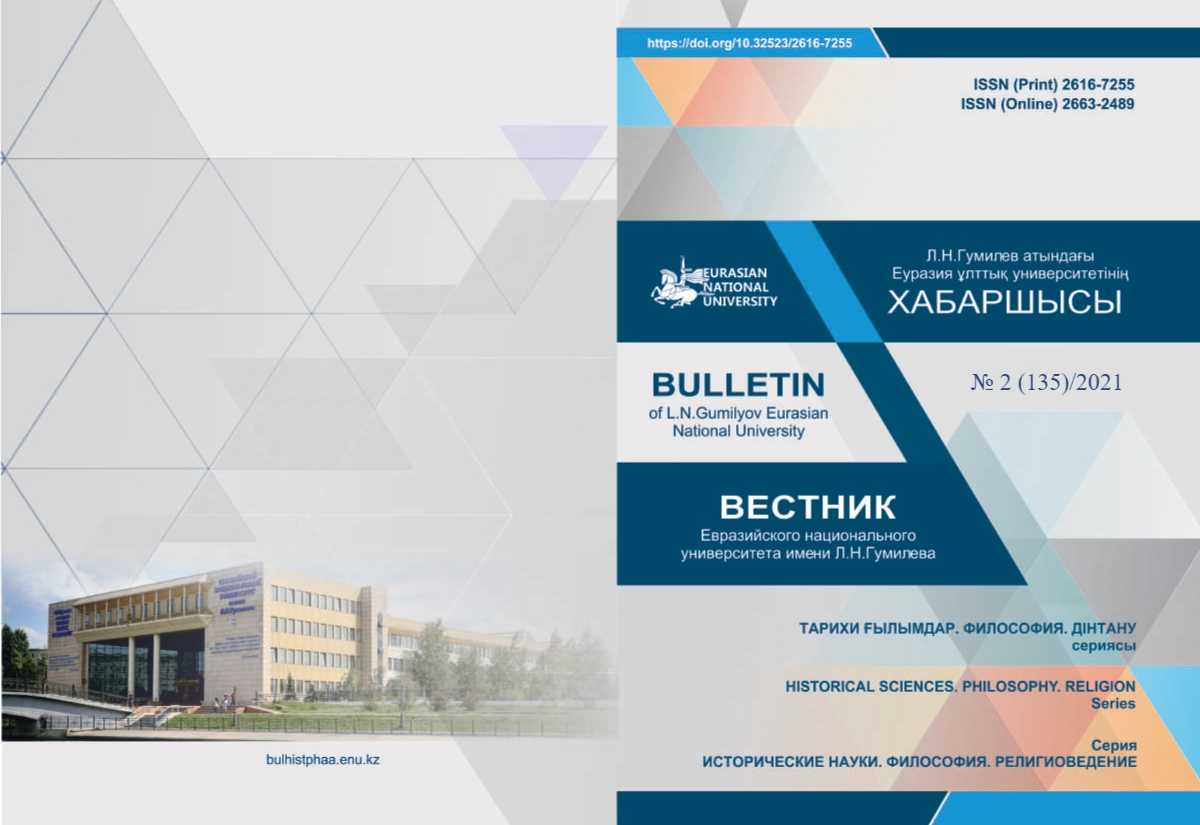Dialectics, Academician and Time: on the question of dialectics, culture, the status of universities and in connection with the 25th anniversary of the L. N. Gumilyov Eurasian National University Dedicated to J. M. Abdildin
Views: 190 / PDF downloads: 111
DOI:
https://doi.org/10.32523/2616-7255-2021-135-2-100-110Keywords:
theory of knowledge; culture and civilization; university, education; science; society; academician.Abstract
The article examines the content potential of dialectics, dialectical thinking for the development of culture, civilization and in their context, the sphere of university education. There is carried out a comparative analysis of the rational-empirical and dialectical ways of thinking. The article considers their connection with the possibilities of understanding and studying the essence of procedural phenomena, processality as such, which can only express the possibilities of an adequate understanding of the cognizable and obtaining objective knowledge, both in research and in educational processes. There is conducted an analysis of the specifics of the rational-empirical worldview and world attitude, which proceeds from the tasks of calculating the states of statics at the points "here" and "now", which does not provide consideration of what is happening as a procedural matter. The article describes the anti-dialectical concepts and methods. The author notes concepts within the positivist tradition with its modern trends, postmodernism, functionalism, and structuralism. All forms of anti-dialectical thinking and methods of rational-empirical understanding of the world lead to serious «mutations» of the understanding of man and humanity, lead demonstrated to the recognition of the priority of the social, consumer image of society and its corresponding value orientations. The real option for the development of sociality (and not sociality), man, science, education, as well as the entire culture and civilization is an adequate, activity-based world attitude and understanding of the world. At the same time, activity as the basis of such a worldview and world attitude should not be understood as a set of actions as, it was suggested, by M. Weber to understand sociality. Dialectical thinking cannot allow the identification of the whole with the totality of its parts, just as it cannot allow the identification of activity with the totality of certain actions. Dialectics, acting at the same time as logic, theory of knowledge and methodology, turns out to be a serious and only basis for an adequate orientation of a person in the world, which reproduces the laws of a person's holistic activity in his attitude to the world. At the same time, the article considers a social nature of man. Dialectics in the conditions of modern consumer society is extremely little in demand and unacceptably little. In this regard, the works of philosophers who support and develop the classical line of development of philosophy, the line of dialectics, are of particular importance. Its presence is important for the survival of culture and civilization, for the survival of man and society, for resisting the loss of man. In this regard, the article highlights the high social significance of the activities of the Doctor of Philosophy, Academician of the National Academy of Sciences of the Republic of Kazakhstan Zh. M. Abdildin, Professor and the high social significance of of the L. N. Gumilyov Eurasian National University, where Zh. M. Abdildin works at the Department of Philosophy. The author notes the need for deep development of dialectics as logic, theory of knowledge and as a methodology for the development of modern science and education. It is of great importance for an adequate understanding and solution of the strategic tasks of modern society, for the preservation of man and humanity, for the development of universities as temples of science, education, and culture in general.
Downloads

Downloads
Published
How to Cite
Issue
Section
License
Copyright (c) 2021 N.V. Guseva

This work is licensed under a Creative Commons Attribution-NonCommercial 4.0 International License.







